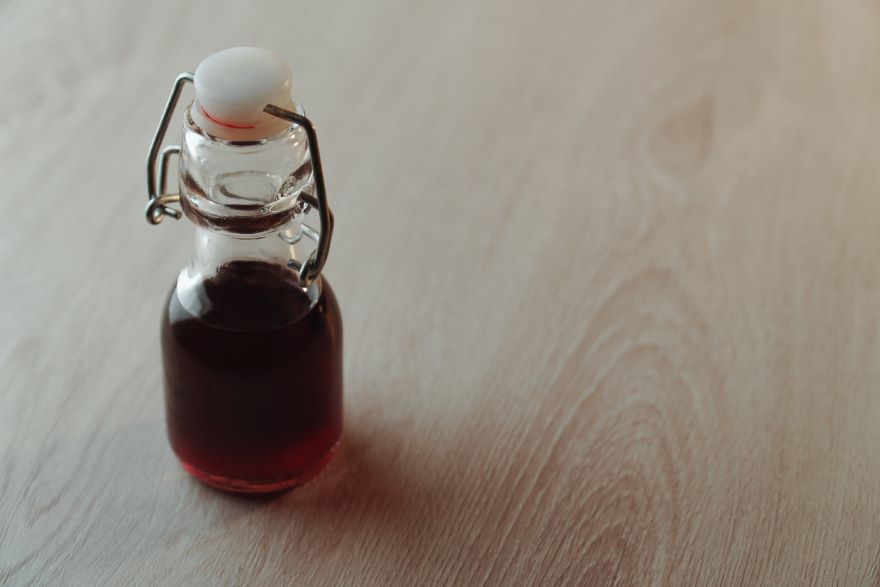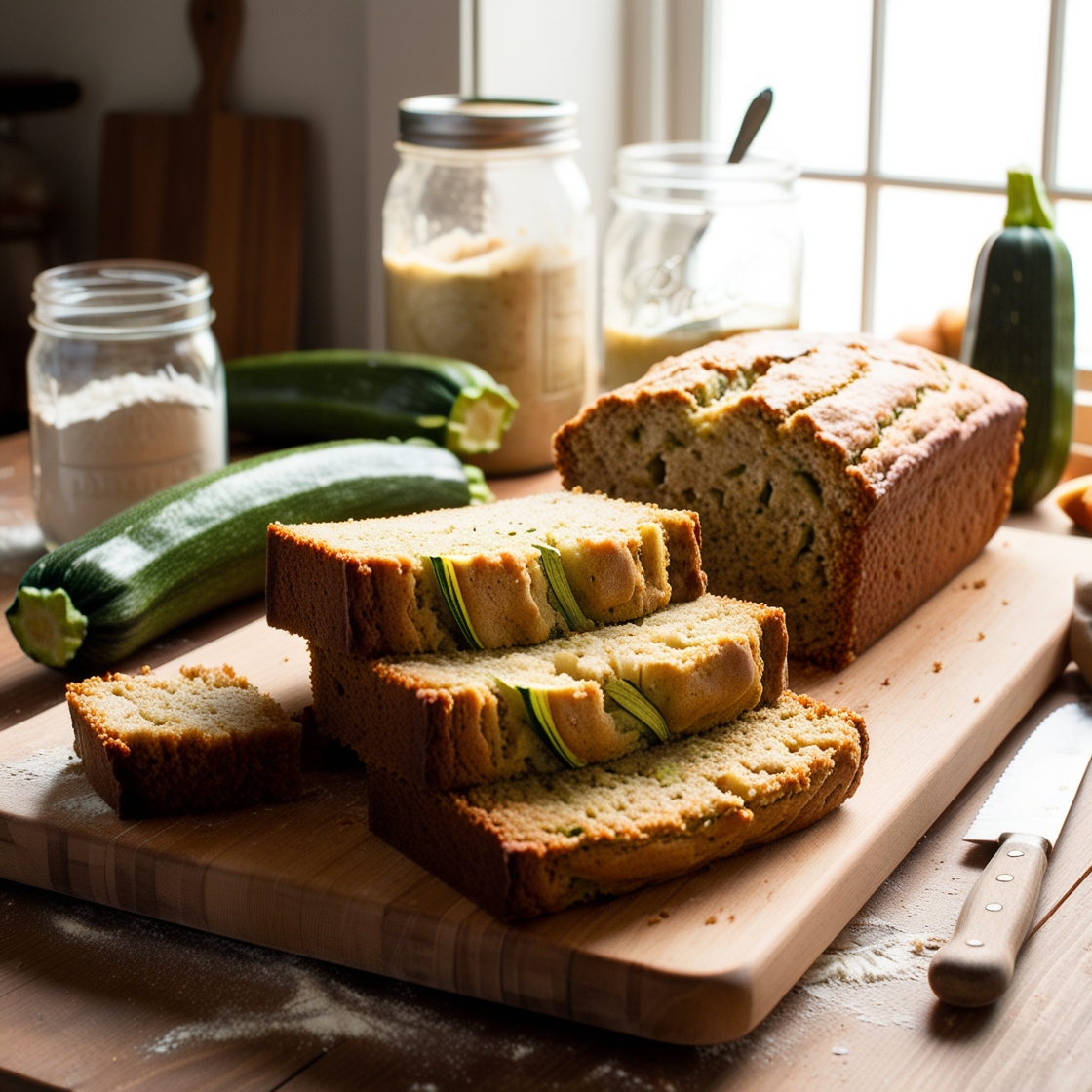My love story began in a sterile hospital room twenty-four years ago with James’s celiac diagnosis. As I held his hand, I didn’t know how much our lives would change.
Those first days, the doctor gave us basic guidelines – no bread, pasta, or cereals. But we were just beginning to understand how deep we’d need to look. Every meal became a learning experience.

One evening, while making fish and chips, James sat on the kitchen counter watching me cook. The question, ‘Is malt vinegar gluten-free?’ had never crossed my mind until he asked for extra on his portion. Reading the label that night, I discovered something concerning—malt vinegar contains barley, making it unsafe for someone with celiac disease.
Sometimes the biggest discoveries start with the smallest questions. For us it began with vinegar.
Living with Celiac: What We’ve Learned Along the Way
When James was diagnosed, I found myself constantly asking questions like ‘Is malt vinegar gluten-free?’ along with checking countless other ingredients. Celiac disease isn’t a simple food allergy – it’s your body reacting to gluten as if it were an invader.
The Gluten Detective’s Guide
Gluten hides in surprising places beyond bread and pasta:
- Soy sauce in stir-fries
- Many salad dressings
- Common seasonings
- Some medications
- Malt vinegar
Creating a Safe Kitchen
Our survival depends on:
- Separate toaster and cutting boards
- Color-coded utensils
- Designated storage spaces
- Fresh wooden spoons
- Individual condiment jars
When creating our safe kitchen, investing in dedicated equipment became essential. A powerful blender like the Vitamix became our secret weapon for everything from grinding our own gluten-free flours to creating perfectly smooth sauces. Its self-cleaning feature and sealed system help prevent any cross-contamination, while its power handles even the toughest gluten-free ingredients with ease.
- Variable Speed Control: Easily adjust speed to achieve a variety of textures. The dial can be rotated at any point during the blend, so you’re in complete control
- Large Batches: The size and shape of the self-cleaning 64-ounce container is ideal for blending medium to large batches. Design Feature : Radial cooling fan and thermal protection system
- Hot Soup: The blades in the Vitamix container reach speeds fast enough to create friction heat, bringing cold ingredients to steaming hot in about six minutes
- Hardened Stainless-Steel Blades: Our aircraft-grade stainless steel blades are designed to handle the toughest ingredients, so from the first blend to the last, you get the same quality results
- Self-Cleaning: With a drop of dish soap and warm water, your Vitamix machine can clean itself in 30 to 60 seconds
Safe Food Champions
We embraced naturally safe options:
- Fresh produce
- Unprocessed meats
- Eggs and dairy
- Rice, corn, quinoa
- Most vinegars (except malt)
Remember: There’s no such thing as “just a little” gluten – even tiny amounts can hurt. This isn’t a diet choice; it’s a medical necessity. But with knowledge and care, these restrictions become opportunities for creativity.
Learning to Love Differently Through Food
Learning about celiac disease meant becoming careful about every ingredient. When people ask ‘Is malt vinegar gluten-free?’ I explain how it’s made from barley, containing gluten that’s harmful to those with celiac disease.
We tried different vinegars, each bringing something new to our kitchen:
- Apple cider vinegar for our vegetables and salads, which James dubbed our “everything sauce”
- Distilled white vinegar for pickled vegetables, helping us adapt his grandmother’s cucumber recipe
- Rice vinegar that led to making our own sushi rolls
- Balsamic vinegar for special occasion meals
- Wine vinegar for our Sunday roast marinades
Each substitute not only worked well but introduced us to new flavors and recipes. What started as a necessary change turned into an opportunity to try different foods and cooking styles.

Growing Our Love Through Understanding
Our kitchen transformation became a testament to our growing bond. Every cabinet reorganization, every new container label, and every separated cutting board represented another way to show my love through action. What started as my protective instincts evolved into a shared responsibility as James grew older.
We developed systems that became our special language of care. Color-coding became our kitchen’s love language.
- Green cutting boards and utensils for gluten-free foods
- Red for anything that might contain gluten
- Blue for raw proteins
- Yellow for fruits and vegetables
Each morning starts with our shared kitchen routine. James checks the toaster—exclusively for gluten-free bread. I organize the counters, ensuring our safe zones remain uncompromised. We’ve turned these safety measures into moments of connection, chatting about our plans while maintaining our careful system.
Love Beyond Our Kitchen
Taking our safe food practices into the world presented new challenges and opportunities to strengthen our bond. Restaurant visits that once filled me with anxiety became adventures we tackled together. We developed a routine: calling ahead, speaking with chefs, explaining our needs. Now, James handles business lunches with confidence, often calling me afterward to share stories about educating others about celiac disease.
Social gatherings brought their own challenges. Family celebrations required careful planning, but our relatives learned to embrace our needs. Holiday meals transformed into opportunities for creativity. Last Thanksgiving, James’s aunt surprised us by making every dish gluten-free – a gesture that showed how our journey had become our family’s journey too.
Our home remains our safe haven, where every meal is an expression of love. When James returns from work, we often spend evenings trying new recipes or perfecting old ones. These moments in the kitchen aren’t just about food; they’re about the continuing story of our love and care for each other.
Our Family’s Favorite Gluten-Free Recipes
Over the years, we’ve created recipes that tell the story of our journey together. Each one holds special memories and marks milestones in our lives.
Our Family’s Signature Vinegar Blend
- 1 cup apple cider vinegar
- 1 tablespoon brown sugar
- 1/4 teaspoon sea salt
- A splash of rice vinegar (James’s special addition)
- Optional: fresh herbs from our garden
This blend was born during a rainy Sunday afternoon when James was thirteen. We spent hours perfecting the balance, and now we make large batches to give as gifts. Each recipient hears the story of how a mother and son turned a restriction into a creation.
Perfecting our gluten-free recipes required reliable equipment. A dedicated stand mixer became essential for achieving the right texture in our gluten-free baked goods. The powerful motor handles dense gluten-free doughs with ease, while having a separate mixer eliminates any risk of cross-contamination from regular flour.
- #1 MIXER BRAND IN THE WORLD* *Source: Euromonitor International Ltd. for retail sales revenue, USD, all retail channels. More information, including date ranges available at: mixerclaim.kitchenaid.com
- Built to take it all on with the durable and built-to-last metal construction, and 59 touchpoints around the mixer bowl for great mixing results.
- 4.5 Quart Stainless Steel Bowl to mix up to 8 dozen cookies* in a single batch. Dishwasher safe. *Using the flat beater; 28g dough each
- Easily add ingredients with the tilt-head design, because you'll have better access to the bowl - lock the head in place while mixing
- 10 speeds for nearly any task or recipe, from mixing ingredients together on the stir speed, to whipping cream at speed 8, you'll get thorough ingredient incorporation every time
James’s “Better Than Fish & Chips”
Gluten-Free Fish Batter:
- 1 cup rice flour
- 1/2 cup cornstarch
- 1 teaspoon baking powder
- 1/2 teaspoon salt
- 1 cup cold sparkling water
- 1 egg
- 2 tablespoons olive oil
Special Vinegar Sauce:
- 1/2 cup apple cider vinegar
- 2 tablespoons white wine vinegar
- 1 teaspoon maple syrup
- Pinch of sea salt
- Dash of smoked paprika
Instructions:
- Mix dry ingredients thoroughly.
- Whisk wet ingredients separately.
- Combine just before coating fish.
- Fry in oil at 350°F until golden.
- Serve with our special vinegar sauce.
This recipe took months to perfect. Each Friday became “Fish and Chips Night,” with James taking detailed notes about what worked and what didn’t. Now it’s so good that friends request it specifically when visiting.
Sunday Roast with Gluten-Free Gravy
Gravy Base:
- 2 cups certified gluten-free beef broth
- 2 tablespoons rice flour
- 1 tablespoon balsamic vinegar
- Fresh herbs (thyme, rosemary)
- Roast meat drippings
Making this gravy taught us patience. We spent countless Sundays experimenting until we found the perfect consistency. Now James makes it better than I do.

Work Lunch Prep Special
Base:
- Gluten-free pasta
- Grilled chicken
- Fresh vegetables
- Feta cheese
- Kalamata olives
Dressing:
- 3 tablespoons rice vinegar
- 2 tablespoons olive oil
- Fresh herbs
- Honey
- Sea salt
We prepare these lunches together every Sunday evening, turning a routine task into quality time. James adds his own touches now, experimenting with different combinations while we catch up on each other’s lives.
Advocating Through Love
Our kitchen has become more than a safe space – it’s where we’ve learned to transform challenges into opportunities. What started as protecting one child has grown into helping other families navigate celiac disease. We share our recipes, our mistakes, and our discoveries.
Together, we’ve built connections with local restaurants, helping them understand cross-contamination risks and safe food preparation. For example, we introduced many restaurants to Coconut Secret’s Coconut Aminos Soy-Free Seasoning Sauce (30 Fl. Oz.), a gluten-free alternative to traditional soy sauce that’s made from coconut tree sap and sea salt. This versatile sauce has become a staple in our kitchen and many local restaurants, proving that gluten-free alternatives can be both safe and delicious.
- GREAT TASTING SOY SAUCE ALTERNATIVE - Delicious seasoning alternative you can use exactly like soy sauce in salad dressing, marinades, sautés or to sprinkle on sushi. It is made with coconut tree sap and not coconuts, so it does not have a coconutty flavor
- TWO INGREDIENTS - The delicious, tangy-sweet flavor of our Original Coconut Aminos liquid sauce is achieved with just two ingredients: coconut tree sap and sea salt
- SATISFY CRAVINGS WITHOUT COMPROMISING FLAVOR - Coconut Secret Coconut Aminos have 73 percent less sodium than traditional soy sauce. It is also USDA organic, gluten-free, non-GMO, vegan, vegetarian and have no MSG. It contains 17 amino acids, making them one of the healthiest Asian condiments on the market
- DON'T SETTLE FOR IMITATIONS - While there are many copycat products using the coconut aminos name, none can match the unique flavor of the original. There's a reason Coconut Secret Coconut Aminos is still the top-selling soy sauce alternative in the world!
- SUSTAINABLE PRACTICES - Agrochemicals and GMOs are strictly prohibited from our farms in the Philippines. We use environmentally sustainable organic farming methods and always follow fair trade practices so you can consume our products with confidence
We host gatherings for local families affected by celiac disease. Our kitchen becomes a classroom where we demonstrate recipes and share tips. These events have created a support network that extends far beyond food safety—they’ve built lasting friendships. Each gathering reminds us that the most powerful way to handle challenges is by facing them together.
When others ask ‘Is malt vinegar gluten-free?’ we share our journey of discovery. These conversations have opened doors for other families dealing with celiac disease.
Final Thoughts
That evening in the kitchen with the malt vinegar bottle started an unexpected journey. What began as a simple dietary restriction led us to discover new ways of cooking, organizing, and sharing meals together.
Our kitchen adapted with us. Color-coded cutting boards, separate toasters, and labeled containers became part of our daily routine. We explored alternative vinegars – apple cider for our signature blend, rice vinegar for Asian dishes, balsamic for special occasions. Each substitute opened doors to new recipes and traditions.
Twenty-four years later, our Friday fish and chip nights, Sunday roast experiments, and shared meal preparations have become more than just cooking – they’re our way of turning necessary changes into positive choices. The kitchen skills and organization systems we developed have helped us create safe, delicious meals that everyone enjoys.
What started with a question about vinegar taught us that sometimes limitations lead to unexpected discoveries. For us, it was finding new flavors, creating family recipes, and sharing what we learned with others who face similar challenges.

*We may earn a commission for purchases made using our links. Please see our disclosure to learn more.






